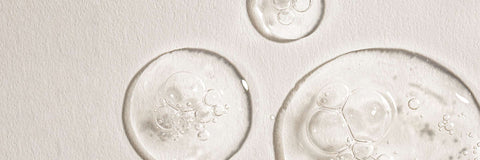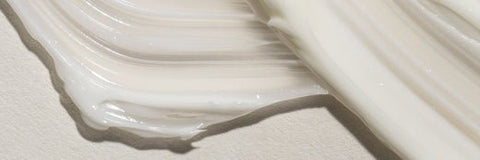Regardless of how old you are, what your skin type is, or what your shade or color your skin is, all of us are at risk for developing dark spots on our faces. They can take the form of little freckles or bigger spots, be barely noticeable or really obvious. Not only can they make skin look uneven– in some cases, those dark spots can be a sign of something more serious, such as skin cancer. Although you can probably see them pretty clearly, you may not be aware of what’s causing them which is why, in this article, we’ll talk about what those dark spots are, what causes them, and how to prevent dark spots from forming in the first place. We’ll even discuss what products you need in your skin care routine to keep those pesky little spots at bay!
IN A NUTSHELL
Main Takeaways: The biggest culprit when it comes to the case of dark spots on your face is sun damage. In addition to avoiding the sun as much as possible, you need to protect your skin with an effective SPF.
Good to Know: If you’ve already started experiencing dark spots on your face, your best plan of attack is a skincare routine that includes products formulated to combat them, plus sunscreen!
Recommended Products: Nectar of the C Vitamin C Serum, Crème de la Cream Brightening Moisturizer, and Youth Fairy Retinol Moisturizer.
What Are Dark Spots on Your Face
You may not be aware of it, but your skin contains something called melanin, which is a pigment. Like all pigments, it’s responsible for giving your skin its color. When your skin is exposed to the sun or other light sources, your skin produces more melanin, causing your skin to become darker, i.e. tan. However, it can also result in unwanted dark spots on your face.This is referred to as hyperpigmentation.
What Causes Dark Spots on Your Face
Believe it or not, hyperpigmentation is actually a means by which the skin tries to protect itself from sun exposure. It can also occur when there is any kind of trauma to the skin, such as a blemish, cut or scratch. The more melanin you have in your skin, the more likely you are to hyperpigment, resulting in these dark spots on your skin.
As we mentioned above, the sun’s powerful UV rays are probably the biggest culprit when it comes to the cause of dark spots. UV stands for ultraviolet. These UV rays are a form of electromagnetic radiation that is emitted by the sun and artificial sources, like tanning beds.
When your skin is exposed to UV rays, it tries to protect itself by producing extra melanin. This hyperpigmentation, or extra melanin, can show up shortly after the damage has occurred, or it can take place deeper in the layers of your skin, meaning it won’t appear until years later.
Speaking of which, age is another factor when it comes to dark spots on your face. The older you get and the more time you spend in the sun, the more likely that melanin will cause darker, permanent spots which are often referred to as “age spots.” Again, this is a form of hyperpigmentation.
In addition, an imbalance of hormones is also thought to be a cause of excess melanin. You may have heard about a condition called “pregnancy mask”, or melasma, which is essentially dark spots that form on the face during pregnancy.
How to Prevent Dark Spots on Your Face
As you can probably guess, the number one way to prevent dark spots on your face is to avoid sun exposure and to protect your skin from harmful UV rays as much as possible. This is why every skincare professional will tell you that wearing sunscreen is of utmost importance! Add a hat or an umbrella if you really want to protect your skin. And remember–the sun doesn’t have to be burning bright for your skin to absorb UV rays. If it’s daytime, your skin is exposed to UV radiation.
We mentioned earlier that trauma to your skin can also cause dark spots. Avoid picking at your skin when you have breakouts and blemishes, as this can cause irreversible damage to your skin.
Finally, one of the best and most effective ways of reducing the appearance of dark spots on your face is with the proper skincare products. Read on to find out what you need to use.
Best Products To Reduce the Appearance of Dark Spots
Now that you know what to do to avoid dark spots, what can you do about the unwanted spots you already have? The best way to reduce the appearance of dark spots is using the correct skincare products. Vitamin C is your best friend when it comes to brightening your skin and should be a part of every skincare routine. We also love retinol for its ability to increase cell turnover, resulting in the reduced appearance of hyperpigmentation. Here are the best products for treating dark spots:
Nectar of the C Vitamin C Serum
Not only is vitamin C known for its ability to brighten the skin and reduce the appearance of dark spots, its antioxidant properties also help protect your skin against harmful UV rays. We included ultra-hydrating hyaluronic acid in this serum to give your skin an immediate glow.
Crème de la Cream Brightening Moisturizer
This skin-balancing lightweight face cream will not only add the perfect amount of moisture to your skin, it will help reduce the appearance of dark spots as well as fine lines and wrinkles with the help of vitamin C and vitamin B3, both powerful antioxidants with brightening properties.
Youth Fairy Retinol Moisturizer
In addition to firming the skin and reducing the appearance of fine lines and wrinkles, retinol also works its magic on dark spots. Combined with plant stem cells for more radiant skin, the small yet highly effective dose of retinol in Youth Fairy works to gently smooth and even out your skin tone and texture.
While both vitamin C and retinol are known to brighten the skin, it’s important to note that these powerful and active ingredients shouldn't layer with each other. It’s ok to use both ingredients, but it’s important to alternate the application of each- try using vitamin C in the morning and retinol in the evening.







